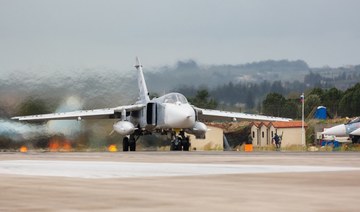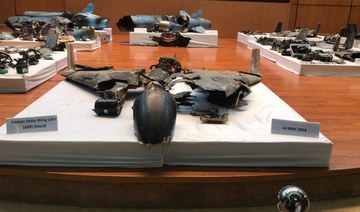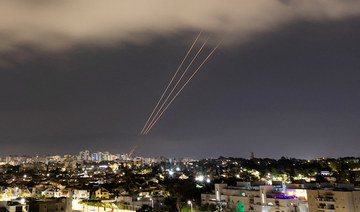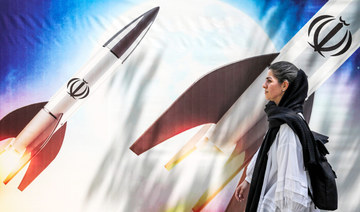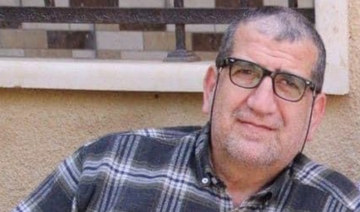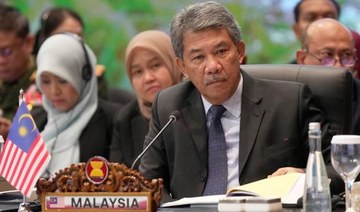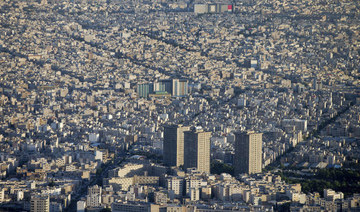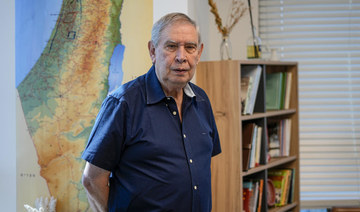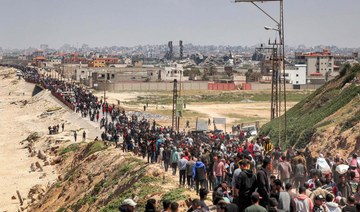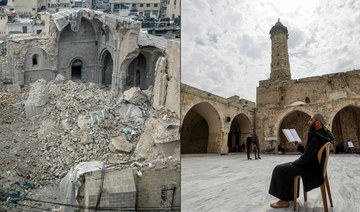DUBAI: Flights at Dubai's international airport, one of the world's busiest, were briefly disrupted Sunday due to "suspected drone activity," officials said.
Two arriving flights had to be diverted, it said, while media reports said the planes had landed at a smaller airport in the neighbouring emirate of Sharjah.
"Dubai Airports can confirm that flight arrivals were briefly disrupted at Dubai International from 12:36 (0836 GMT) to 12:51 (0851 GMT) UAE local time this afternoon due to suspected drone activity," a spokesperson said in a statement Sunday.
Flights at the airport have been disrupted several times in recent years by recreational drones, with the last incident occurring in February
Suspected drones disrupt Dubai flights
Suspected drones disrupt Dubai flights
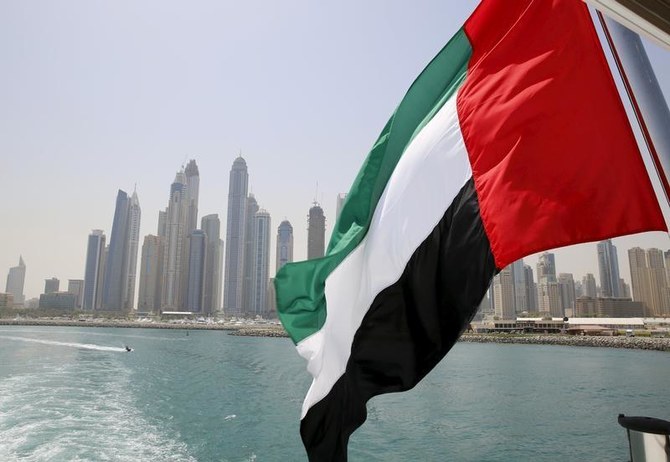
- Two arriving flights had to be diverted, it said
- "Dubai Airports can confirm that flight arrivals were briefly disrupted at Dubai International"
Heavy rains lash UAE and surrounding nations as the death toll in Oman flooding rises to 18
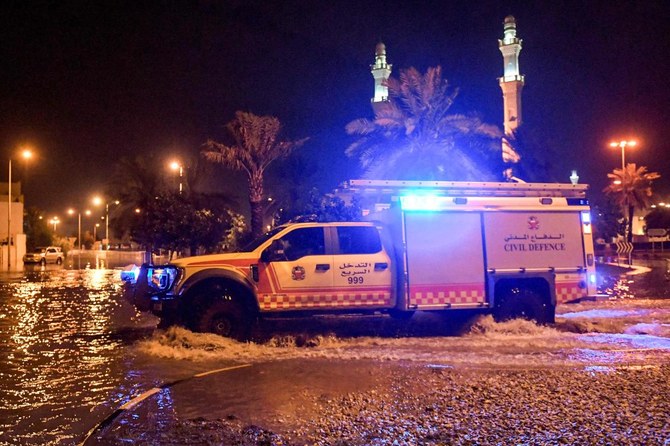
The rains began overnight, leaving massive ponds on streets as whipping winds disrupted flights at Dubai International Airport, the world's busiest for international travel and the home of the long-haul carrier Emirates.
Police and emergency personnel drove slowly through the flooded streets, their emergency lights flashing across the darkened morning. Lightning flashed across the sky, occasionally touching the tip of the Burj Khalifa, the world's tallest building.
Schools across the UAE, a federation of seven sheikhdoms, largely shut ahead of the storm and government employees were largely working remotely if able. Many workers stayed home as well, though some ventured out, with the unfortunate stalling out their vehicles in deeper-than-expected water covering some roads.
Authorities sent tanker trucks out into the streets and highways to pump away the water.
Rain is unusual in the UAE, an arid, Arabian Peninsula nation, but occurs periodically during the cooler winter months. Many roads and other areas lack drainage given the lack of regular rainfall, causing flooding.
Initial estimates suggested over 30 millimeters (1 inch) of rain fell over the morning in Dubai, with as much as 128 mm (5 inches) of rain expected throughout the day.
Rain also fell in Bahrain, Qatar and Saudi Arabia.
In neighboring Oman, a sultanate that rests on the eastern edge of the Arabian Peninsula, at least 18 people had been killed in heavy rains in recent days, according to a statement Tuesday from the country's National Committee for Emergency Management. That includes some 10 schoolchildren swept away in a vehicle with an adult, which saw condolences come into the country from rulers across the region.
Iran closed nuclear facilities in wake of Israel attack: IAEA chief
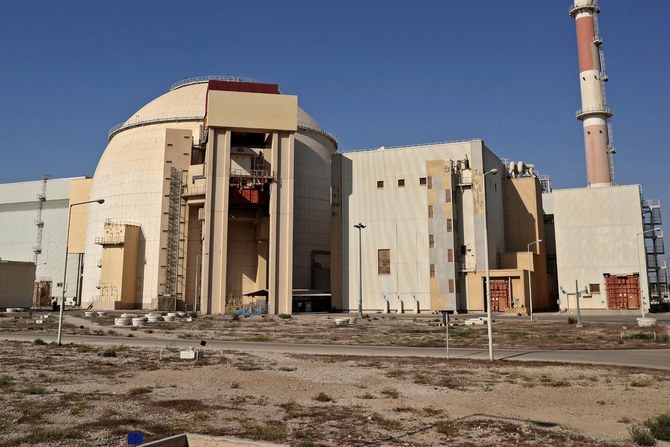
- Israel has carried out operations against nuclear sites in the region before
- Israel accuses Iran of wanting to acquire an atomic bomb, something Tehran denies
United Nations: Iran temporarily closed its nuclear facilities over “security considerations” in the wake of its massive missile and drone attack on Israel over the weekend, the head of the UN’s atomic watchdog said Monday.
Speaking to journalists on the sidelines of a UN Security Council meeting, International Atomic Energy Agency (IAEA) chief Rafael Grossi was asked whether he was concerned about the possibility of an Israeli strike on an Iranian nuclear facility in retaliation for the attack.
“We are always concerned about this possibility. What I can tell you is that our inspectors in Iran were informed by the Iranian government that yesterday (Sunday), all the nuclear facilities that we are inspecting every day would remain closed on security considerations,” he said.
The facilities were to reopen on Monday, Grossi said, but inspectors would not return until the following day.
“I decided to not let the inspectors return until we see that the situation is completely calm,” he added, while calling for “extreme restraint.”
Iran launched more than 300 drones and missiles at Israel overnight from Saturday into Sunday in retaliation for an air strike on a consular building in Damascus that killed seven of its Revolutionary Guards, two of them generals.
Israel and its allies shot down the vast majority of the weapons, and the attack caused only minor damage, but concerns about a potential Israeli reprisal have nevertheless stoked fears of all-out regional war.
Israel has carried out operations against nuclear sites in the region before.
In 1981, it bombed the Osirak nuclear reactor in Saddam Hussein’s Iraq, despite opposition from Washington. And in 2018, it admitted to having launched a top-secret air raid against a reactor in Syria 11 years prior.
Israel is also accused by Tehran of having assassinated two Iranian nuclear physicists in 2010, and of having kidnapped another the previous year.
Also in 2010, a sophisticated cyberattack using the Stuxnet virus, attributed by Tehran to Israel and the United States, led to a series of breakdowns in Iranian centrifuges used for uranium enrichment.
Israel accuses Iran of wanting to acquire an atomic bomb, something Tehran denies.
’No longer a shadow war’: Iran says attack on Israel marks strategic shift
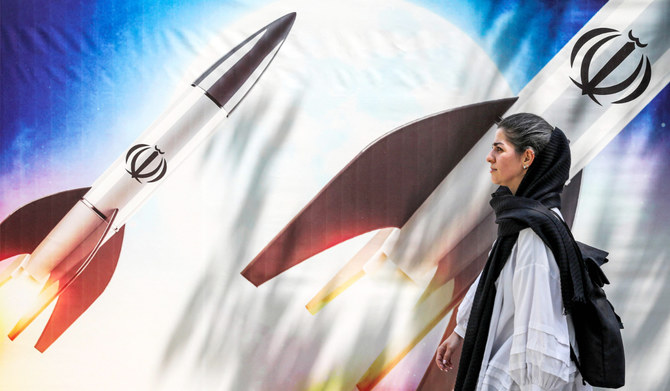
- Israel’s military said it intercepted 99 percent of the aerial threats with the help of the United States and other allies, and that the overnight attack caused only minor damage
- Israel has killed at least 33,797 Palestinians in Gaza, mostly women and children, according to the health ministry in the Hamas-run territory
TEHRAN: Iran’s missile and drone barrage against Israel was the first act of a tough new strategy, Tehran says, warning arch foe Israel that any future attack will spark “a direct and punishing response.”
This spells a dramatic shift from past years in which the Islamic republic and Israel have fought a shadow war of proxy fights and covert operations across the Middle East and sometimes further afield.
Iran from late Saturday launched hundreds of drones and missiles, including from its own territory, directly at Israel, to retaliate for a deadly April 1 strike on Iran’s consulate in Damascus.
Israel’s military said it intercepted 99 percent of the aerial threats with the help of the United States and other allies, and that the overnight attack caused only minor damage.
Iran said it had dealt “heavy blows” to Israel and hailed the operation as “successful.”
“Iran’s victorious... operation means that the era of strategic patience is over,” the Iranian president’s political deputy, Mohammad Jamshidi wrote on X.
“Now the equation has changed. Targeting Iranian personnel and assets by the regime will be met with a direct and punishing response.”
President Ebrahim Raisi said the operation had “opened a new page” and “taught the Zionist enemy (Israel) a lesson.”
Iran said it acted in self-defense after the Damascus strike levelled the consular annexe of its embassy and killed seven members of the Islamic Revolutionary Guard Corps (IRGC), including two generals.
Western governments denounced Iran’s retaliation as “destabilising the region.”
Iran, however, insisted the attack was “limited” and urged Western nations to “appreciate (its) restraint” toward Israel, especially since the outbreak of the Gaza war on October 7.
Regional tensions have soared amid the Israel-Hamas war which has drawn in Iran-backed armed groups in Lebanon, Syria, Iraq and Yemen.
Several IRGC members, including senior commanders, have been killed in recent months in strikes in Syria which Iran has also blamed on Israel.
Since the 1979 Islamic revolution, Iran has frequently called for Israel’s destruction and made support for the Palestinian cause a centerpiece of its foreign policy.
But it had refrained from directly striking Israel until Saturday, an attack on a scale which appeared to catch many in the international community by surprise.
For decades, Iran relied on a network of allied groups to exert its influence in the region and to deter Israel and the United States, according to experts.
A 2020 report by the Washington Institute said that Tehran had adopted a policy of “strategic patience,” which had “served it well since the inception of the Islamic republic in 1979.”
Former moderate president Hassan Rouhani was a staunch defender of the strategy, especially following Washington’s 2018 withdrawal from a landmark nuclear deal, advocating for Tehran not to take immediate countermeasures and taking a longer view.
Even after the 2020 US killing of Qasem Soleimani, an IRGC commander revered in Iran, Tehran gave prior warning to Washington, US sources said, before it launched missiles against two American bases in Iraq, and no soldiers were killed in the attack.
After Saturday’s attack on Israel, Guards chief Hossein Salami also said Iran was “creating a new equation.”
“Should the Zionist regime attack our interests, our assets, our personnel and citizens at any point, we will counterattack it from the Islamic Republic of Iran,” he was quoted as saying by local media.
The attack was also hailed as a “historic” success by Iranian media, with the government-run newspaper Iran saying the offensive “has created a new power equation in the region.”
The ultra-conservative daily Javan said the attack was “an experience Iran needed, to know how to act in future battles” and that it would make Israel “think long before (committing) any crime” against Tehran.
The reformist Ham Mihan newspaper said the attack “ended the status quo and broke the rules of the conflict that pitted the two sides against each other for 20 years and pushed the situation into another phase.”
“This is no longer a shadow war,” it said.
Lebanese officials charge Mossad killed Hamas financier
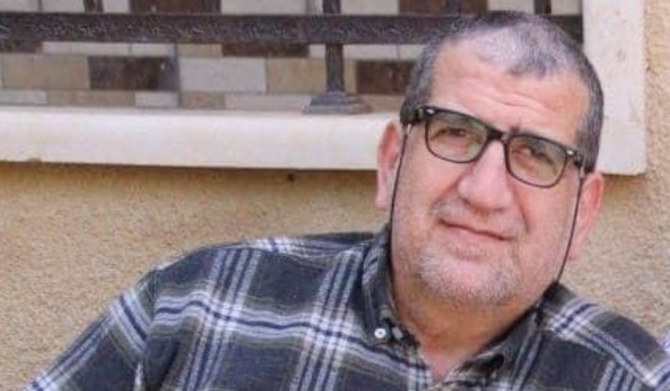
- A Lebanese judicial official and a security source told AFP that Mossad likely masterminded Sarur’s killing, both speaking on condition of anonymity as they were not authorized to speak to the press
BEIRUT: A Lebanese minister and two senior officials said preliminary findings suggest Israel’s Mossad spy agency was behind the killing of a US-sanctioned Lebanese man accused of sending Iranian money to Hamas.
The body of Mohammad Sarur, 57, was found riddled with bullets in a villa in the Lebanese mountain town of Beit Mery last Tuesday.
Interior Minister Bassam Mawlawi told Al-Jadeed TV late Sunday that, “according to the data we have so far, (the killing) was carried out by intelligence services.”
Asked whether he was referring to Mossad, Mawlawi confirmed.
AFP has requested comment from Israeli government officials but has received no response so far.
The US Treasury said in August 2019 that it had sanctioned Sarur for funnelling “tens of millions of dollars” from Iran’s Revolutionary Guards “to Hamas for terrorist attacks originating from the Gaza Strip,” through Lebanon’s Hamas-allied Hezbollah.
The Lebanese group has been exchanging near daily cross-border fire with the Israeli military since October 7 when Hamas launched its unprecedented attack on Israel, triggering the war in Gaza.
A Lebanese judicial official and a security source told AFP that Mossad likely masterminded Sarur’s killing, both speaking on condition of anonymity as they were not authorized to speak to the press.
“The preliminary results of the investigation indicate that the Israeli Mossad was behind the assassination,” the security official told AFP.
Initial findings “suggest the Mossad used Lebanese and Syrian agents to lure Sarur to a villa in Beit Mery,” the official said, adding that they had wiped fingerprints from the crime scene and used silenced weapons.
The judicial official also told AFP that preliminary information pointed to Mossad, but that the probe was ongoing, with investigators collecting evidence “especially from communications data.”
The US Treasury said Sarur “served as a middle-man” for money transfers between the (Revolutionary) Guards and Hamas “and worked with Hezbollah operatives to ensure funds were provided” to Hamas’s armed wing.
Sarur “has an extensive history working at Hezbollah’s sanctioned bank, Bayt Al-Mal,” the Treasury said.
In January 2019, the Lebanese army said it had arrested a suspected Mossad agent over a failed bid to assassinate a Hamas official in the country’s south a year earlier.
In the 1970s, Israel launched a targeted assassination campaign against Palestinian militants in retaliation for the killing of 11 Israelis at the 1972 Munich Olympics, leaving several militants dead in Beirut.
Israeli military pledges response to Iran attack amid calls for restraint
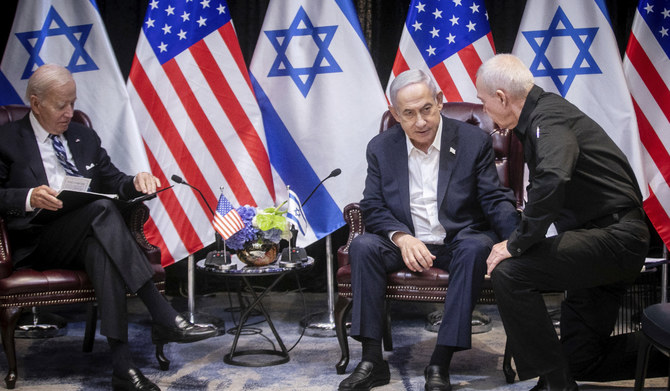
- Iran mounted its attack after the April 1 killing in Damascus of seven Iranian Revolutionary Guards officers, including two senior commanders
- Israel has killed at least 33,797 Palestinians in Gaza, mostly women and children, according to the health ministry in the Hamas-run territory
JERUSALEM: Israel’s military chief said on Monday his country would respond to Iran’s weekend missile and drone attack amid calls for restraint by allies anxious to avoid an escalation of conflict in the Middle East.
Prime Minister Benjamin Netanyahu summoned his war cabinet for the second time in less than 24 hours to weigh how to react to Iran’s first-ever direct attack on Israel, a government source said.
Israel’s military Chief of Staff Herzi Halevi said the country would respond, but provided no details.
“This launch of so many missiles, cruise missiles, and drones into Israeli territory will be met with a response,” he said at the Nevatim Airbase in southern Israel, which sustained some damage in Saturday night’s attack.
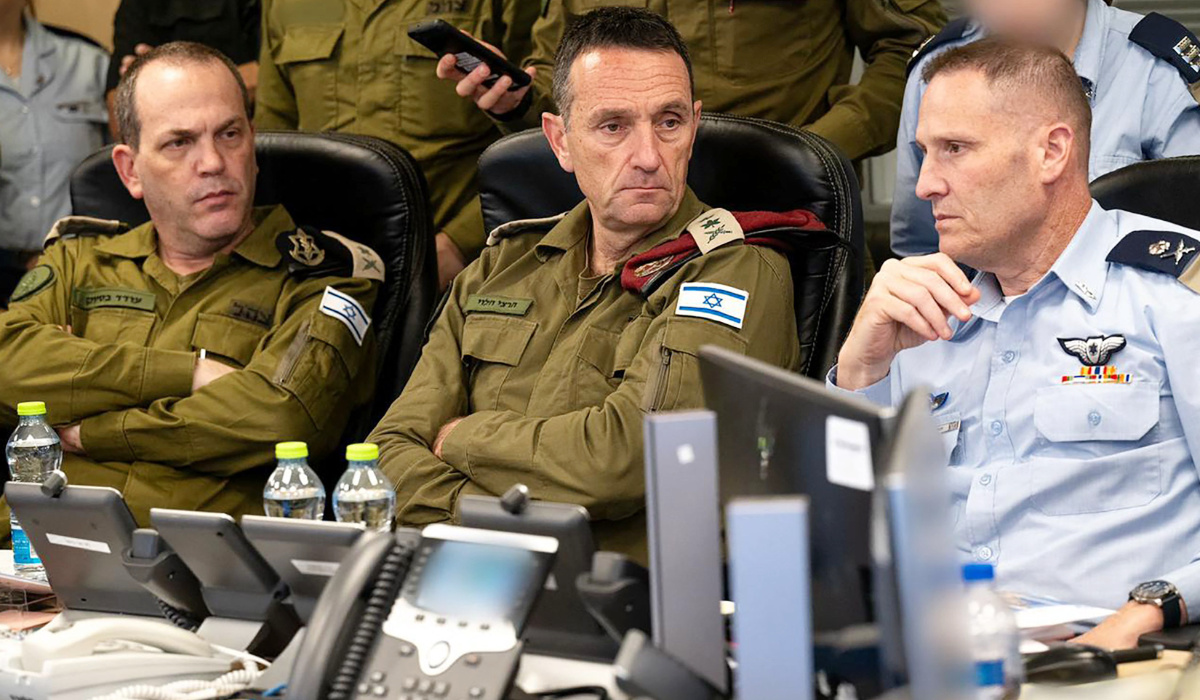
Iran’s attack — launched in retaliation for a suspected Israeli airstrike on its embassy compound in Damascus on April 1 — has increased fears of open warfare between Israel and Iran and heightened concerns that violence rooted in the Gaza war is spreading further in the region.
Wary of the dangers, President Joe Biden told Netanyahu the United States will not take part in any Israeli counter-offensive against Iran, officials said on Sunday.
Since the start of the war in Gaza on Oct. 7, clashes have erupted between Israel and Iran-aligned groups in Lebanon, Syria, Yemen and Iraq. Israel said four of its soldiers were wounded hundreds of meters inside Lebanese territory overnight.
It appeared to be the first such known incident since the Gaza war erupted, although there have been months of exchanges of fire between Israel and Lebanon’s armed group Hezbollah.
“We’re on the edge of the cliff and we have to move away from it,” Josep Borrell, the European Union’s foreign affairs chief, told Spanish radio station Onda Cero. “We have to step on the brakes and reverse gear.”
French President Emmanuel Macron, German Chancellor Olaf Scholz and British Foreign Secretary David Cameron made similar appeals. Washington and United Nations Secretary-General Antonio Guterres have also issued calls for restraint.
White House national security spokesman John Kirby declined on Monday to say during a briefing whether Biden urged Netanyahu in talks on Saturday night to exercise restraint in responding to the attack.
“We don’t want to see a war with Iran. We don’t want to see a regional conflict,” said Kirby, adding that it was up to Israel to decide “whether and how they’ll respond.”
Countries including France, Belgium and Germany summoned the Iranian ambassadors. The French foreign ministry said France was working with its partners to de-escalate the situation.
Russia has refrained from criticizing its ally Iran in public over the strikes but expressed concern about the risk of escalation on Monday and also called for restraint.
“Further escalation is in no one’s interests,” Kremlin spokesman Dmitry Peskov said.
Iran mounted its attack after the April 1 killing in Damascus of seven Iranian Revolutionary Guards officers, including two senior commanders. Israel neither confirmed nor denied carrying out the attack.
Iran’s retaliatory attack, involving more than 300 missiles and drones, caused modest damage in Israel and wounded a 7-year-old girl. Most were shot down by Israel’s Iron Dome defense system and with help from the US, Britain, France and Jordan.
In Gaza itself, where more than 33,000 Palestinians have been killed in the Israeli offensive according to Gaza health ministry figures, Iran’s action has drawn applause.
Israel began its campaign against Hamas after the Palestinian militant group attacked Israel on Oct. 7, killing 1,200 people and taking 253 hostages by Israeli tallies.
G7 MULLS SANCTIONS
In Washington, Biden reiterated US commitment to Israel’s security ahead of a meeting with Iraqi Prime Minister Mohammed Shia Al-Sudani.
Sudani, speaking alongside Biden, said their views may be divergent about what is happening in the region but they wanted to stop the conflict from expanding.
British Prime Minister Rishi Sunak said the Group of Seven major democracies were working on a package of coordinated measures against Iran.
“I spoke to my fellow G7 leaders, we are united in our condemnation of this attack,” Sunak said in parliament.
Italy, which holds the rotating presidency of the G7, said it was open to new sanctions against individuals engaged against Israel.
In an interview with Reuters, Italian Foreign Minister Antonio Tajani said new sanctions would need the backing of all the G7. He suggested any new measures would be focused on individuals rather than whole nations.
“If we need to have more sanctions for people clearly engaged against Israel, supporting for example terrorism, supporting Hamas, it is possible to do it,” Tajani said.
Iran’s attack has caused travel disruption, with at least a dozen airlines canceling or rerouting flights, and Europe’s aviation regulator reaffirming advice to airlines to use caution in Israeli and Iranian airspace.
Iraqi Airways announced a resumption of flights between Iraq and Iran on Tuesday.
Israel remained on high alert, but authorities lifted some emergency measures that had included a ban on some school activities and caps on large gatherings.
Iranian Foreign Minister Hossein Amirabdollahian said Tehran had informed the United States that the attack on Israel would be limited and for self-defense, and that regional neighbors had been informed of the planned strikes 72 hours in advance.
Iranian Foreign Ministry spokesperson Nasser Kanaani said on Monday, however, that no pre-arranged agreement was made with any country prior to the weekend attack.
Kirby said that Iran did not warn the United States in advance of the attack’s timeframe or targets, calling reports that Tehran had done so “categorically false.”



